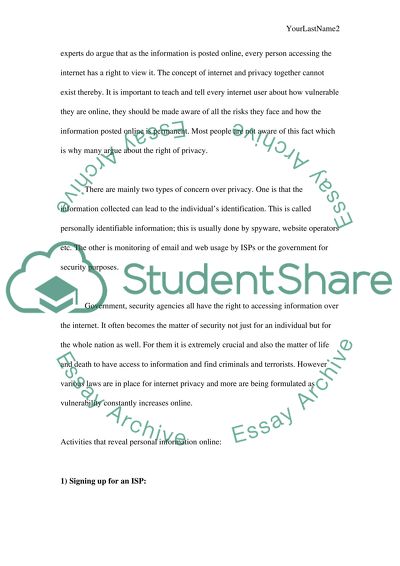Cite this document
(“Internet Privacy Research Paper Example | Topics and Well Written Essays - 2000 words”, n.d.)
Retrieved from https://studentshare.org/history/1437123-internet-privacy
Retrieved from https://studentshare.org/history/1437123-internet-privacy
(Internet Privacy Research Paper Example | Topics and Well Written Essays - 2000 Words)
https://studentshare.org/history/1437123-internet-privacy.
https://studentshare.org/history/1437123-internet-privacy.
“Internet Privacy Research Paper Example | Topics and Well Written Essays - 2000 Words”, n.d. https://studentshare.org/history/1437123-internet-privacy.


